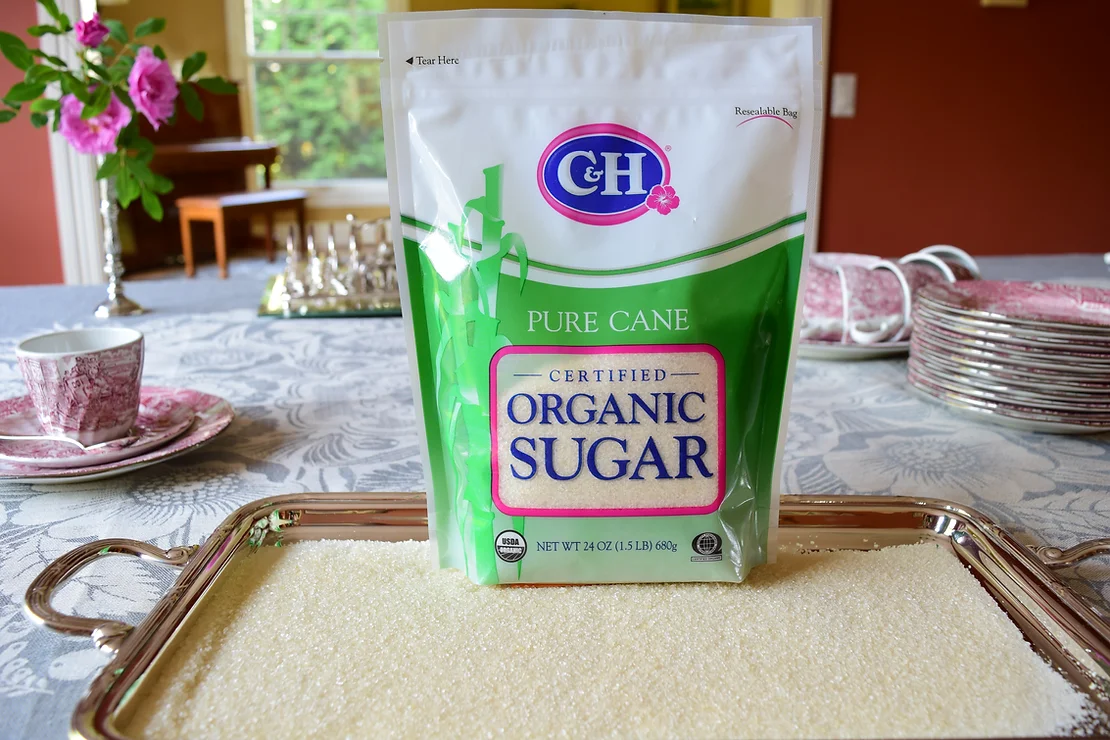Organic Sugar: What Does it Actually Mean?
On my quest to discover all certified organic sugars being sold on store shelves across the United States, here’s what I found out.
I sorted them out into three groups: raw cane sugars, unrefined cane sugars, and beet sugars. Raw sugars are the most common and often labeled simply as “organic sugar”.
To sum up, certified organic sugars must be extracted from organically grown sugar cane or sugar beets plants. By law, they must be processed, handled, and packaged according to a long list of rules—the National Organic Program or NOP—established by the U.S. Department of Agriculture.
Read on to learn 30 facts about organic sugars and why buying them might benefit you.
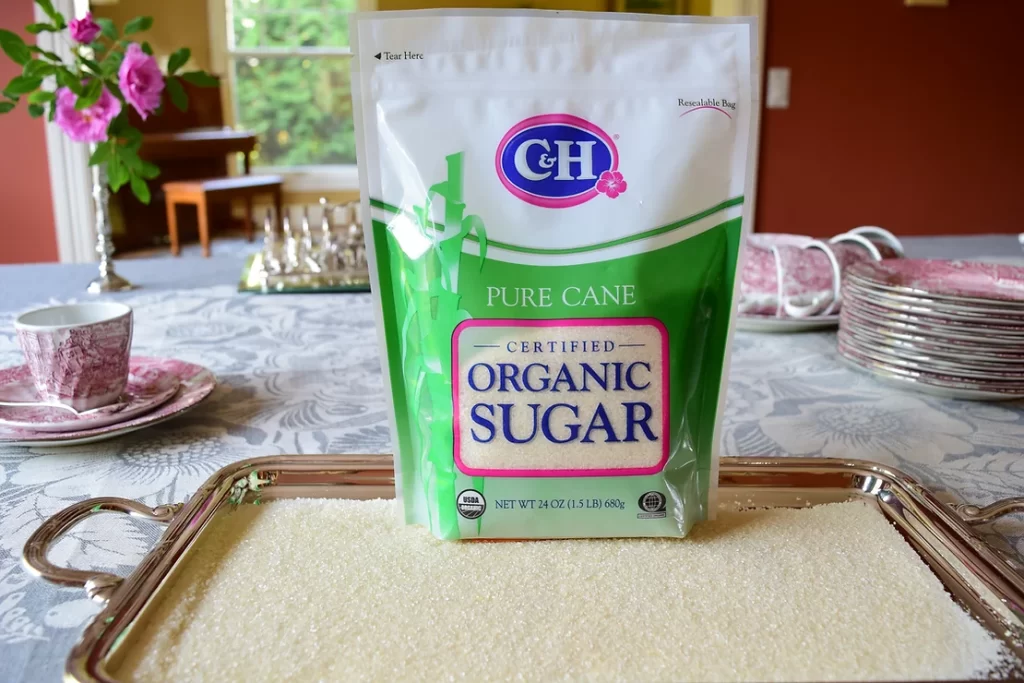
Organic Sugar From Cane
Note: The terms sugar cane and sugar beet are made up of two words. To simplify, I connect the words and use sugarcane and sugarbeet or I simply use cane and beet.
Certified Organic Sugar is Strictly Regulated
-
The use of the term “organic” in food labels is strictly regulated by the National Organic Program (NOP), which was established and is administered by the U.S. Department of Agriculture (USDA). Sweeteners labeled with the organic claim must comply not only with the USDA’s organic standards but also with the FDA’s regulations for labeling.
-
Organic Sugars must be sourced from organic cane or beet that has been grown according to the NOP standards. Farmers must use practices that maintain or enhance the soil and water quality while conserving wetlands, woodlands, and wildlife. They are inspected by the USDA or a certifying agency following a long list of strict rules.
-
Organic farming practices include crop rotation. Genetically modified (GM) seeds, chemical pesticides, synthetic fertilizers, and sewage sludge are not allowed. Organic does not automatically mean “pesticide-free” or “chemical-free”. A variety of sprays and powders are allowed. Still, such substances must not contribute to the contamination of crops, soil, or water. To draw a comparison: organic farmers have restricted access to 27 synthetic pest control products while over 900 are registered for use in conventional farming.
-
A common misconception is that organic sugar is unrefined and minimally processed. The claim “organic” in fact, relates not only to the way a crop is grown, but also how it is processed, handled, and packaged. Just like growing organic crops, organic processing is regulated by the NOP, and manufacturers of organic sugars must comply with it.
-
To be claimed as an organic sweetener and display the USDA’s organic seal on the package’s label, the seller must be certified by a NOP-authorized agent or the USDA. The name of the certifying agency must be stated on the product’s label. People who sell or label a sugar “organic” when they know it does not meet USDA standards can be fined up to $17,952 for each violation.
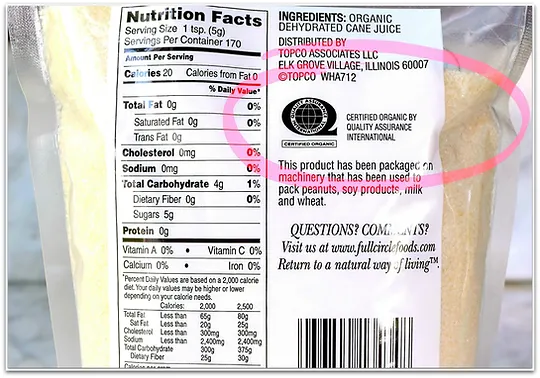
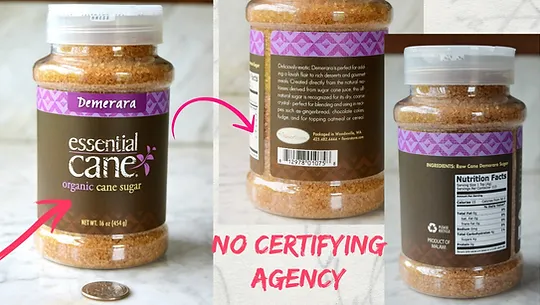
How do Organic Sugars Stack up?
Even though organic sugars might be from sugarbeet or sugarcane plants, the vast majority of the products I found in stores are made from cane — as opposed to refined sugars, which are almost split in half (42 percent from cane and 58 percent from beet). Find below where organic sugars come from and how they compare:
1) From Sugar Beet
-
Organic sugar from beet is not made in the USA: The United States is one of the only countries in the world that grows both cane and beet plants. However, only GM varieties of sugarbeets are planted. Consequently, there is no farming of organic beets and no production of organic beet sugar.
-
Organic sugars from beet are imported from Europe: I found only one organic sugar from beet: NOW Organic Beet Sugar. Be aware that there is one version of this sugar that is not organic: NOW Non-GMO Beet Sugar. Both are imported from Europe. Europe is the world’s leading beet sugar producer. It grows only non-GMO sugar beets and no sugar cane. Also, sugars made from GM cane and GM beet cannot be sold there.
2) From Sugar Cane
-
Most organic sugars in stores are from cane. About 85% of the world’s total sugar production is from cane, and so, most organic sugars we see in stores are going to be from cane too. Up till recently, sugarcane was not a GM crop worldwide. But since 2018, Brazil—one of the top cane sugar producers in the world—has been growing GM cane.
-
Organic sugar from cane is from South America or Africa: Except for one brand (see next), all organic sugars and syrups I found on store shelves across the country are imported. Brazil and India lead the conventional sugar market worldwide, but Paraguay is the leading producer of organic sugar. About 60% of Paraguay’s sugar is organic.
-
Only one producer of organic sugar in the USA: America’s only producer of certified organic sugars and syrups is Florida Crystals Corp. The company pioneered organic sugar farming in the country. Florida Crystals brand of organic sugars is produced in a sugar mill in South Florida. They offer three types of organic sugar and one syrup—check them out at their Amazon storefront here.
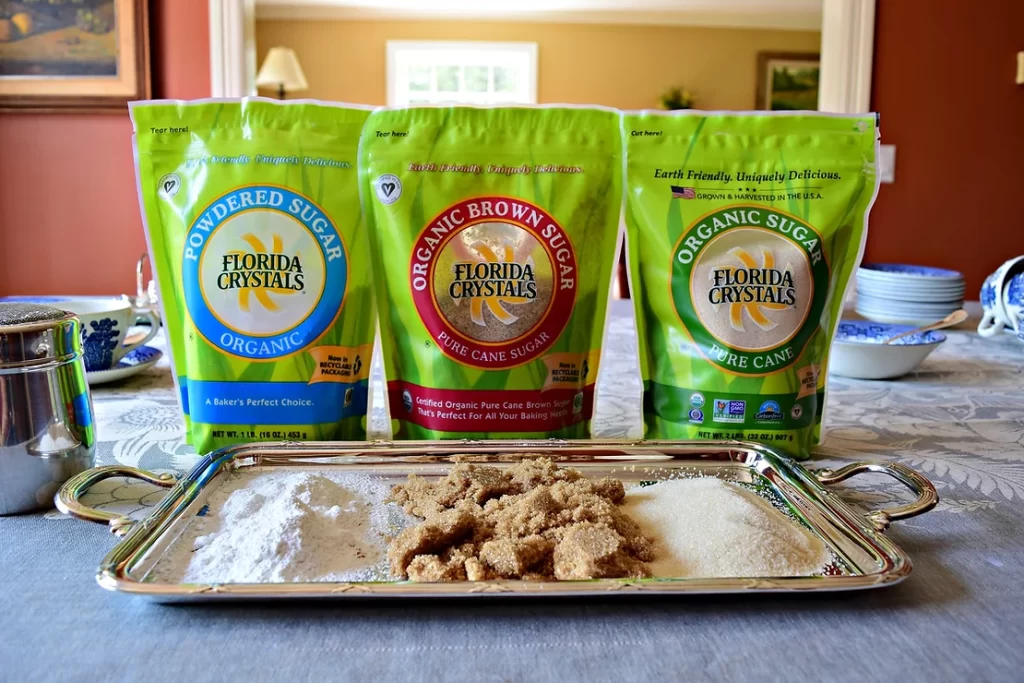
The only organic sugar made in the USA
Raw Sugar
Most organic sugars in stores are raw cane sugars with blonde crystals and labeled simply as “organic sugar”. Other forms of raw sugars include organic light brown sugar, organic dark brown sugar, organic powdered sugar, organic molasses, and organic cane syrup.
To learn all details about these sweeteners, read a previous post titled Raw Sugar: From Turbinado to Demerara, Find out Exactly What it is. To sum up, here’s what you need to know about raw sugar:
-
A highly-refined sugar that comes straight from freshly harvested cane: Organic raw sugars are made close to cane fields in a sugar mill, by crushing the freshly harvested cane. The resulting juice is clarified and filtered to remove impurities. The juice’s water is then evaporated, and a single-crystallization process results in sugar crystals covered with molasses (the thick dark syrup that is formed when cane juice is heated up). Crystals are then centrifuged and washed to remove most of the molasses. As said before, farming practices and chemicals must be approved by the USDA’s organic standards.
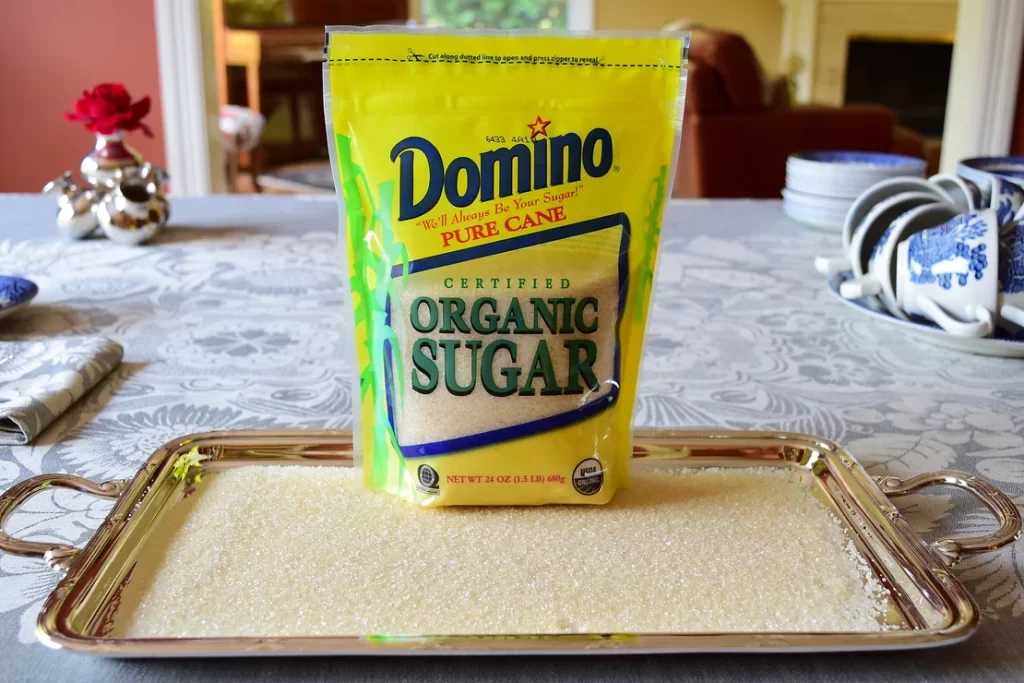
-
Crystals have just a hint of molasses flavor and a pale blond color: Trace amounts of the original cane molasses are retained around the crystals, which gives them color and flavor. They contain less than 2% molasses. Their crystals are medium-sized, slightly larger than table sugar.
-
Slightly less refined than table sugar but much less processed: Organic raw sugars with blond color contain about 99% sucrose. To compare, table sugar is 99.95% sucrose. Both of those sugars are purified by crystallization and centrifugation. The difference is table sugar goes through a series of crystallization and centrifugation cycles. Raw sugars go through a single cycle.\
-
A good substitute for table sugar: Organic sugars and table sugar may be used interchangeably for all purposes. They will add a molasses flavor to our recipes. They do not cream and dissolve the same way as table sugar, but they have the same sweetness. One teaspoon of organic raw sugar is as sweet as one teaspoon of table sugar.
-
Organic sugar from cane has many names: When in the supermarket, you can recognize a raw sugar by searching for the following terms: turbinado, evaporated cane juice, dried cane syrup, and dehydrated cane juice.
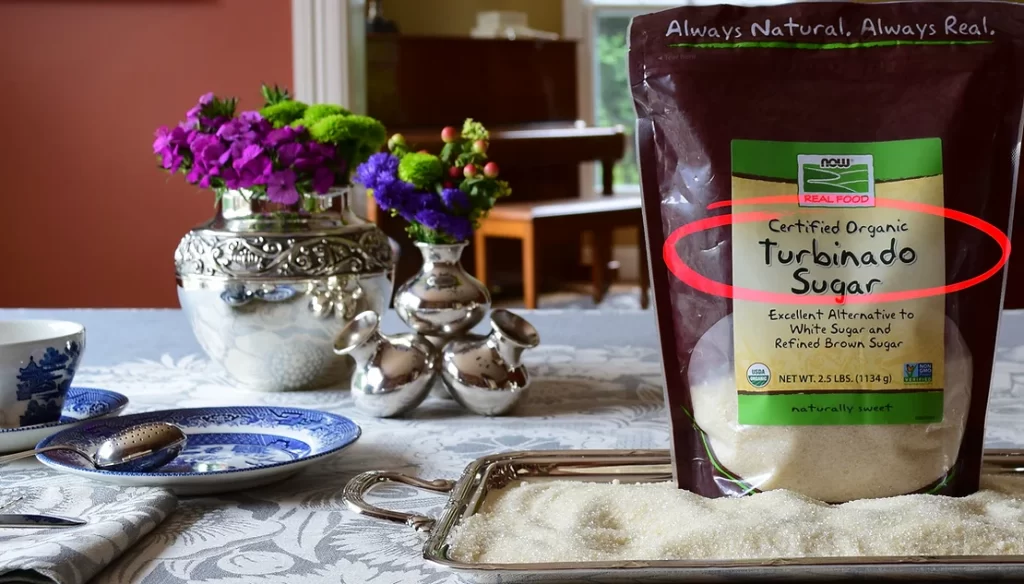
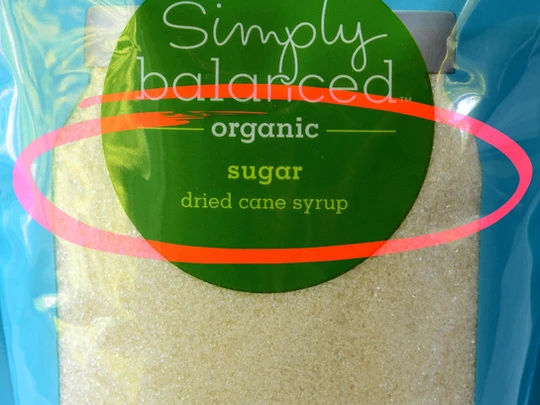
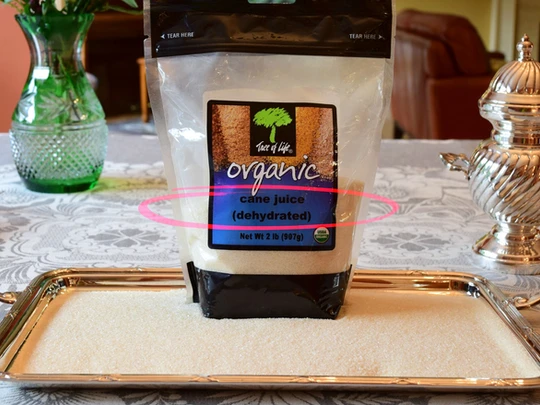
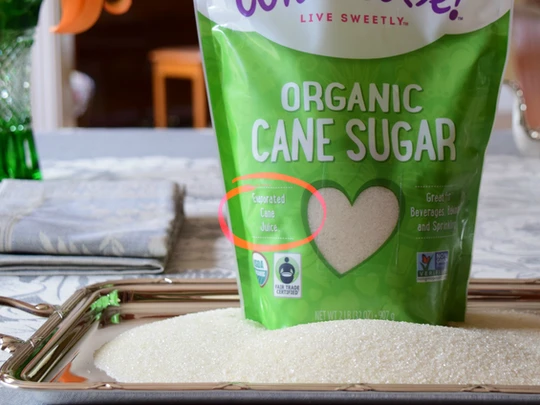
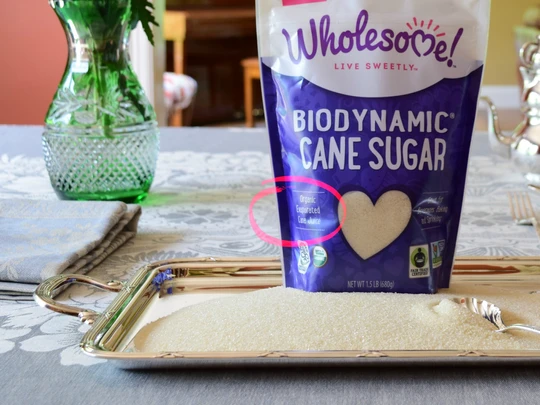
-
In grocery stores, they cost up to 5 times more than regular cane sugar. I purchased a variety of organic sugars in Richmond – VA, Madison – WI, San Francisco – CA, and online. One pound of organic sugars costs from 1.65 to 2.60 dollars. To compare, granulated cane sugar (aka table sugar) varied from 50 to 65 cents per pound.
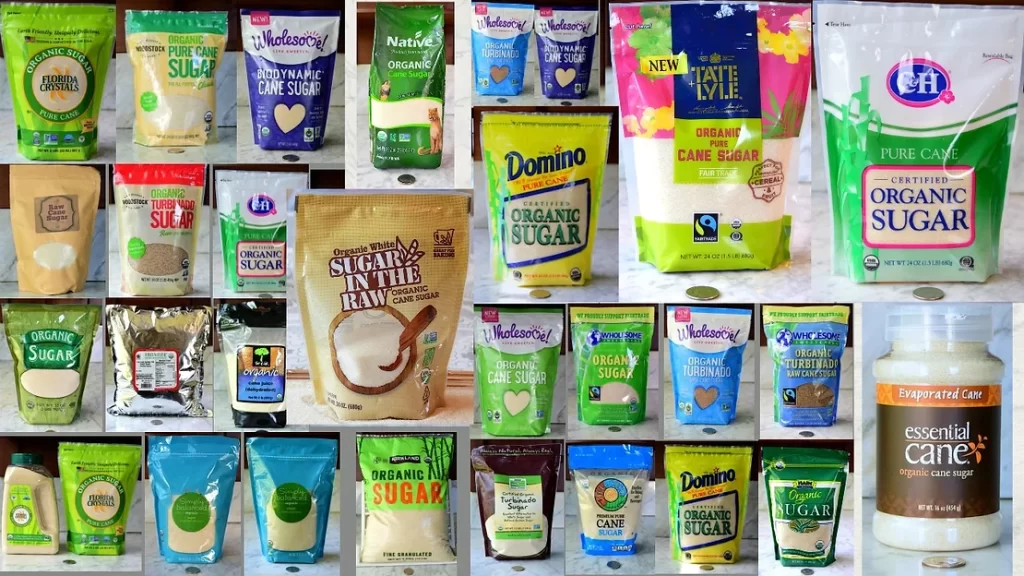
Organic Sugars I Purchased
Other Organic Raw Sugars & Syrups
-
Organic molasses, such as the Wholesome! and Plantation brands, are obtained during the refining process of organic raw sugars (described above).
-
Organic light & dark brown sugars are simply a mixture of organic raw sugar and organic molasses. Light brown sugars have about 2 to 3% molasses added to organic sugar, and dark brown sugars have about 6% added molasses. The two leading brands of organic brown sugar are Wholesome and Florida Crystals.
-
Organic powdered sugar is a blend of organic raw sugar and organic cornstarch or tapioca starch (about 3%). The two leading brands of organic powdered sugar in stores include Wholesome and Florida Crystals.
-
Liquid organic raw cane sugar, such as the Florida Crystals’ brand, is a blend of about 75% organic raw sugar and 25% water to result in an invert syrup (aka golden syrup).
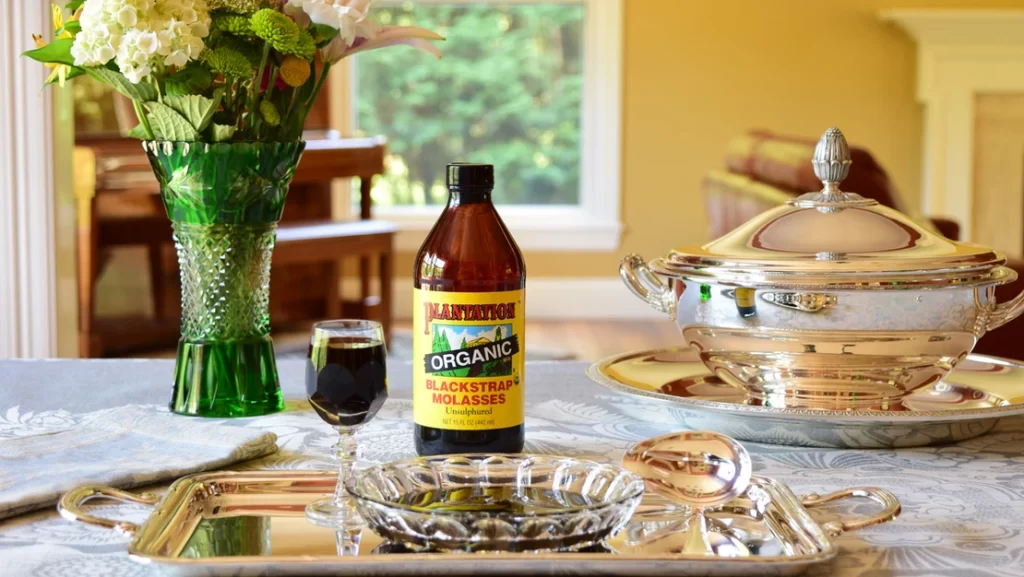
Unrefined Sugar
Unrefined cane sugars retain almost all the original cane molasses around the sucrose crystals. They have between 8 and 14% molasses, which gives them a strong flavor and dark brown—contrary to the raw sugars above, which are centrifuged to remove most of the original cane molasses. For details about unrefined sugars, refer to a previous post titled “Unrefined Sugar: 4 Myths and How it Compares with Common Sweeteners.” I found two types of organic unrefined sugars.
Traditional Artisan Brown Sugars
-
A partially-refined sugar that comes straight from freshly harvested cane: Traditional unrefined sugars are produced close to cane fields using hundreds of years old know-how. They are often made on a small scale for local markets with simple equipment and little capital. Put simply, their refining process involves collecting the cane juice, clarifying it, and boiling its water off through slow simmering in open kettles.
-
They have many different local names worldwide, muscovado of Mauritius Island and Phillippines, rapadura of Brazil, panela of Colombia, piloncillo of Mexico, kokuto of Japan, and jaggery of India.
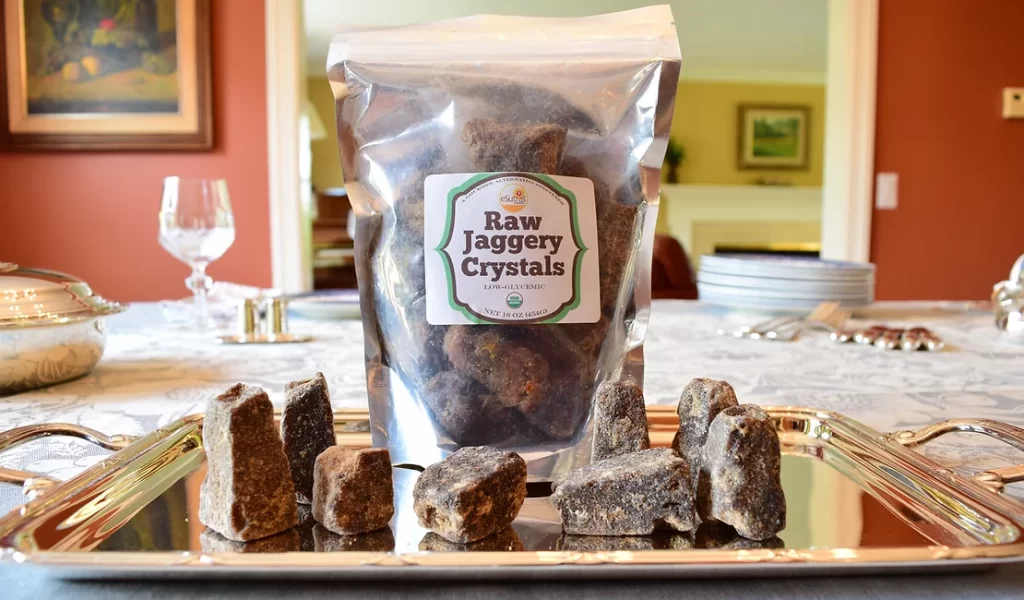
Sucanat
A registered trademark of Wholesome Sweeteners Inc (Sugar Land, TX), Sucanat stands for Sugar Cane Natural. It is an unrefined cane sugar dried by a more sophisticated process than traditional unrefined sugars. Sucanat is organic and fair trade certified. Learn all about Sucanat here.
-
A partially-refined sugar that comes straight from freshly harvested cane and is dried by a patented process: Sucanat production process starts with cane stalks being crushed to extract the juice, which is then clarified and heated in large vats. Hand paddling cools and dries the syrup by a drying process developed by the Swiss company Pronatec.
-
Sucanat does not tend to clump, cake, or harden as regular brown sugars do. It does not dissolve quickly into doughts and batters. However, we can process it in a coffee grinder or pulse it in a blender to help incorporate Sucanat more easily. The following brands are widely available in stores: Wholesome, Now Foods, and Frontier.
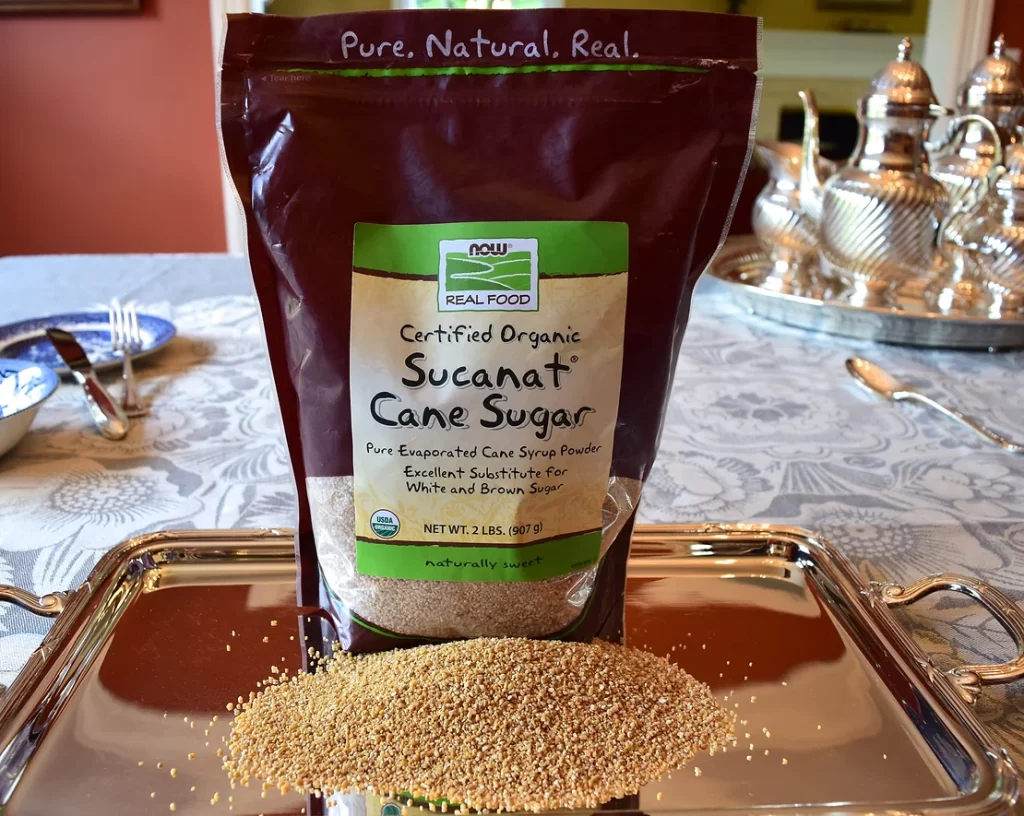
Organic Sugar is not …
-
Organic is not the same as unprocessed. The word “processed” means to alter something from its original state for reasons such as safety, taste, aroma, convenience, availability, and consistency. Organic sugars go through a great deal of processing but much less than refined sugars.
-
Organic is not the same as unrefined. The term “refine” means to purify or remove impurities. Any sugar available in stores, organic or not, is refined. During the refining process, the sucrose crystals are physically separated from impurities. Organic sugars are only slightly less refined than table sugar.
-
Organic sugar is not healthier or nutritionally superior to its conventional (non-organic) counterparts. To compare, common organic sugars have 97 to 99% sucrose and table sugar has 99.95%. The remaining is mostly water in both sugars. All of them have a glycemic index of around 60. An organic turbinado sugar does not provide more nutritive value than a regular turbinado. Organic powdered sugar is not healthier than conventional powdered.
-
Organic cane sugars are not safer for us than conventional ones, but they are definitely safer and better for the environment. As I discussed in a previous post, sweetener safety is a function of the molecules’ structure. Not its origin. Not how the structure is achieved. If we compare two sugars in granulated forms—such as table sugar (99.95% sucrose) versus organic cane sugar (99% sucrose)—we can conclude they are not much different and both are as safe for us.
Main Takeaways
-
Nutritionally speaking, organic sugars are not better than table sugar. We should choose them for their molasses flavor, crunchy texture, or our satisfaction, but not because of their nutritive value as they are not much different than table sugar.
-
Organic sugars are sourced, processed, packaged, and handled following a long list of strict rules. Products are certified organic mainly to protect our natural resources and environment. Our personal benefit is only a side effect. So, while they may be more expensive, for those that are passionate about protecting the planet and enjoy their unique molasses flavor, organic sugars are the right sweetener.

